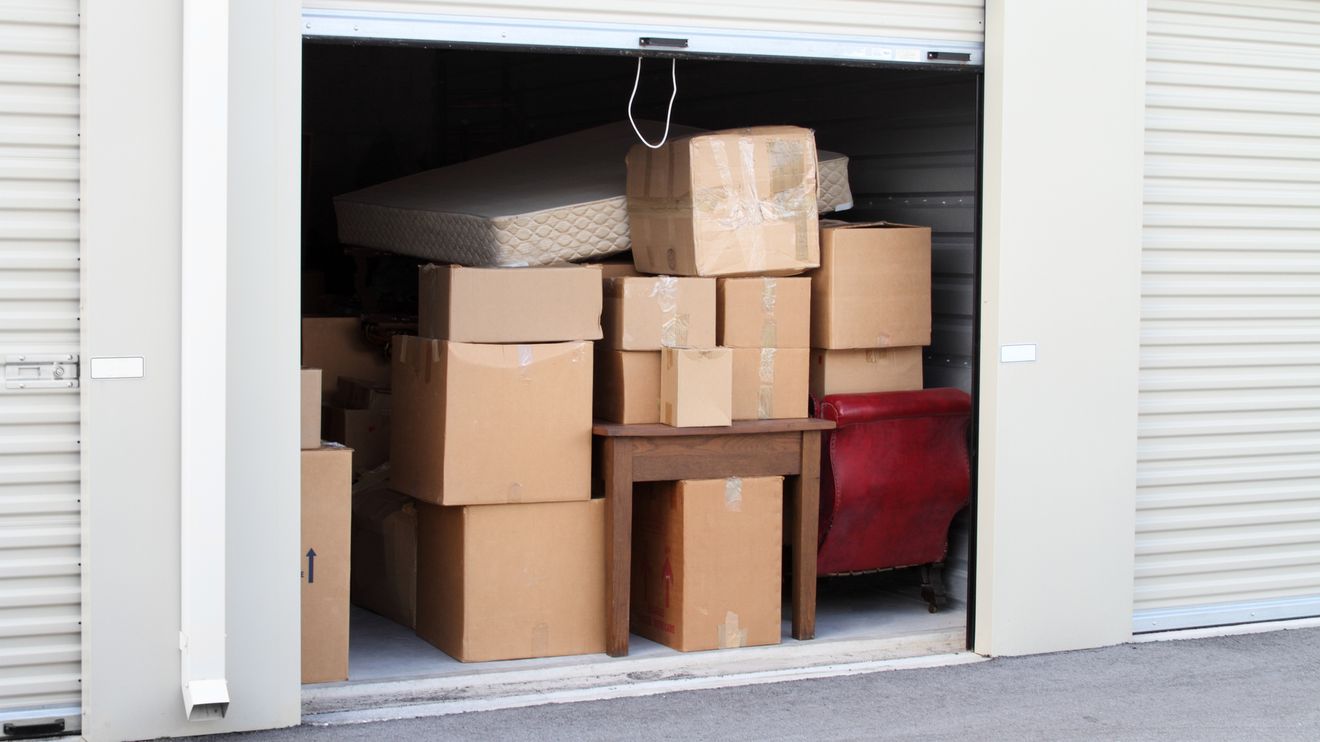More than a decade ago, our family moved from a five-bedroom home in Florida to a two-bedroom apartment in New York City. As much as we tried to downsize in advance of our new life, we just had too much stuff.
So, we did what millions of Americans do: We put the excess in storage. And then we spent years ignoring the costly reality, racking up thousands of dollars in locker-rental fees as a result.
Our story has a happy ending, however. Finally, we said, “Enough is enough,” and combed through everything: the bikes we never rode, the baseball cards that had little to no value, the college papers I saved for no purpose other than to remind myself of that undeserved B minus I got for a paper on “Beowulf.” We tossed much of the stuff, sold some of it (I made a whopping $210 on four bins of baseball cards) and found room in our apartment for the rest.
I’ve been thinking about our pricey storage journey in light of a new report from the Wall Street Journal that chronicles how big the storage industry has become. Among the facts cited: More than one in 10 Americans rent storage space. And they pay $165.55 a month on average for that privilege, which is 20% more than what they paid four years ago.
Do the math and we’re talking about an industry that rakes in billions of dollars annually — specifically, $29.2 billion, according to market researcher IBISWorld.
What makes us such a storage-mad nation? In a word, consumerism. Experts cite the fact that ours is a country predicated on the idea you can buy happiness — in the form of more, well, stuff. A Time magazine story from 2015 summarized the situation:
“Children in the U.S. make up 3.1% of the world’s kid population, but U.S. families buy more than 40% of the toys purchased globally. The rise of wholesalers and warehouse supermarkets has packed our pantries and refrigerators with bulk items that often overflow into a second fridge. One-click shopping and same-day delivery have driven purchasing to another level altogether, making conspicuous consumption almost too easy.”
It wasn’t always like this, of course. The post-World War II era is often cited as the beginning of the “stuff” era: Think the rise of the middle-class, the decent-sized homes they could afford to call home and all those goods they could acquire to put inside those abodes.
Nobody captured this idea better than the late and legendary comedian George Carlin, who devoted an entire bit to “stuff.” As Carlin points out, if we didn’t have stuff, we wouldn’t really need a house. And if we didn’t have so much stuff, we wouldn’t need to move to a bigger house. And if we didn’t have so much stuff beyond that, we wouldn’t need storage lockers. After all, everyone has to find a place for those imported French toenail clippers that Carlin references at one point.
Carlin made these observations decades ago, but the story continues. Consider how Jim Gaffigan, a modern-day comic sage, has picked up the thread. As he observed in 2017: “I don’t understand the logic of a storage unit. ‘Hey, you know that ugly stuff we never use? Why don’t we pay a stranger to hold onto it? That way we can cringe every month when we realize this stuff isn’t worth the monthly charge we’re paying.’”
How do we break this ridiculous cycle? Experts say it’s all about getting into that storage unit and applying some of the same common-sense rules I applied — separating your items into “keep,” “sell,” “donate” and “toss” piles. And don’t let sentiment get the better of you in your decision-making. As the Simplicity Habit website describes a way to approach this decluttering process: “Be honest with yourself about why you’re hanging onto the storage unit and the stuff in it.”
Not that I want to make myself out to be a Marie Kondo-type tidying-up guru. If anything, I see myself as a storage-industry sap: I cringe when I think about the roughly $10,000 I spent on storage for no reason other than I didn’t want to deal with my “stuff.”
That’s money that could have gone to so many important things — say, paying for my children’s college expenses instead of taking out more in loans. Or if I really wanted to throw 10 grand out the window, I could have at least enjoyed the European vacation of my dreams instead of preserving my “Beowulf” essay for time immemorial (and even then, my college papers stayed in the “keep” pile).
But at least I eventually learned my lesson. And as I now eye my increasingly overstuffed closets, I know I must remind myself to declutter every so often, lest I fall into the storage trap once again.
Read the full article here



